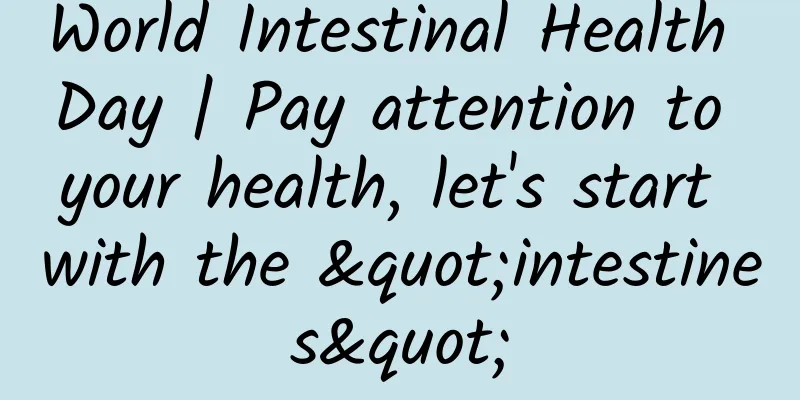Why can't you take vitamin E during breastfeeding?

|
Women who have entered the breastfeeding period may eat some nutrients or health products in order to nourish the body and allow the body to recover as soon as possible. Many breastfeeding women may want to take vitamin E, but they are afraid to take it carelessly, fearing that vitamin E will have an effect on their breastfeeding babies. So why can’t you take vitamin E during breastfeeding? First of all, if a woman is breastfeeding, she can take some vitamin E, but be careful not to eat too much. Although vitamin E is a nutrient, if you take too much, it can easily cause some side effects. And when taking vitamin E, try to buy some natural vitamin E, which is more beneficial to the human body, can play an antioxidant role, and can also resist pollution, which is beneficial to cell health. Secondly, breastfeeding women should try to supplement nutrition through food, which is better for health and will not affect the growth of breastfeeding babies. Women who are breastfeeding should pay attention that they should not eat foods such as leek, maltose, and ginseng during the breastfeeding period. These foods can easily cause milk withdrawal in pregnant women. In addition, some irritating foods should not be eaten, including a lot of spicy food condiments, which are not good for body recovery. In addition, breastfeeding women should try not to take any medicines during the breastfeeding period. If mild symptoms such as fever and cold occur, it is best to treat them through physical methods, or take a small amount of Chinese herbal medicine, so as not to affect the quality of breast milk and affect the baby. FAQs about medication during breastfeeding L1: The safest Relevant studies have shown that this type of drug is unlikely to cause any side effects to pregnant women, or the side effects are unlikely to increase. Moreover, the medicine is not likely to cause harm to the baby. Because this drug is metabolized quickly, it cannot enter breast milk, and even if it enters the body, it cannot cause a threat. L2: relatively safe Scientific research on this type of medicine has shown that it poses no threat to babies, and there are also few studies on the risk factors of related medicines, and no harm has been found, so they can be taken safely. The characteristics of this drug are that it is metabolized faster, the amount digested and absorbed by the body is small, and the side effects caused are not serious. L3: Relative safety There are not many scientific studies on this type of medicine. Side effects may occur after taking the medicine, but they are not likely to be life-threatening. You must consider carefully when taking this medicine, follow your doctor's advice, and control your dosage. L4: May be risky Scientific studies have shown that this drug has certain risks. But if the situation is critical, taking this medicine can save lives. Trust your doctors, they will take all factors into consideration when prescribing medication. Please follow the doctor's instructions on how to do it. L5: There must be harm Many scientific studies have shown that these drugs can cause significant harm to mothers and babies, and the use of these drugs outweighs the benefits. What Chinese medicine is better to take when you get sick during breastfeeding? In fact, it needs to be distinguished according to the patient's condition: 1. Mastitis After getting mastitis, treatment must be timely. Before breast cysts occur, antibiotics such as penicillin and cephalosporin can usually be taken to control inflammation. At this time, you can continue to breastfeed. Frequent sucking by the baby can help discharge the accumulated milk as soon as possible. But you need to observe carefully. If the baby has severe diarrhea, you need to change the medicine or stop breastfeeding immediately. If a cyst has already occurred, medication alone will not be enough and drainage surgery is required. 2. Skin application For breast eczema, it is generally recommended to use growth hormone creams with poor compressive strength such as hydrocortisone butyrate or mometasone, and a small amount can be used. If the skin is broken, mupirocin cream can be used to prevent infection. During the application period, be sure to clean before breastfeeding your baby. In addition, if the wiping area exceeds 1/3 of the breast area or is used for more than 5 days, it is best not to continue breastfeeding. If the nipples are cracked, you can use nipple protection cream with lanolin as the main ingredient, which will not affect the baby. Or apply chloramphenicol ointment, but the area should be completely cleaned before breastfeeding the baby. 3. Fever and cold Fever and colds can be divided into two types. If it is a viral cold, it can be cured in about a week and generally no medication is needed. Just drink more water and get more rest. If symptoms such as fever and cough occur, symptomatic treatment can be taken. If you have a fever, you can take medicines such as ibuprofen granules. If you have a cough with a lot of sputum, you can use expectorants. If you have a stuffy nose, you can use saline to clean your nostrils. Bacterial colds can be treated with antibiotics. If you are not allergic, you can use penicillins or cephalosporins. These drugs will not affect breastfeeding. In addition, it should be noted that compound cold medicines such as Baijiahei and Baifuning, as well as medicines containing codeine and pseudoephedrine are best not to be taken. 4. Urticaria Urticaria is a common allergic skin disease, and patients will feel unbearable itching of the skin. It is safer to use topical medications at this time, such as applying calamine externally, and secondly, you can choose to take loratadine tablets or loratadine orally. If the condition is serious, it is best to see a doctor as soon as possible. 5. Sebaceous cyst Sebaceous cysts are often prone to infection and can be treated with cephalosporin and penicillin antibiotics. After the infection is under control, surgical incision and drainage can be performed. 6. Dental diseases Although examinations such as X-ray, CT and MRI have certain radiation sources, they are not likely to affect breastfeeding. Common local anesthetics for tooth extraction have a rapid metabolism rate and will not affect breastfeeding. For toothache, you can take cephalosporins and penicillins, but if you need to take metronidazole or metronidazole to prevent infection, it is best to stop breastfeeding. 7. Depression For mothers with depression, psychological therapies such as cognitive behavioral therapy can be used to alleviate symptoms. If the effect is not good, tricyclic antidepressants, serotonin reuptake inhibitors (SSRIs), etc. can be used under the guidance of a doctor, which will not affect breastfeeding. 8. Diarrhea Drugs for treating diarrhea usually work in the stomach and intestines and rarely enter the blood and breast milk, so they can be taken safely. If severe diarrhea occurs, Montmorillonite can be used to alleviate the symptoms. |
>>: Why do I gain weight during ovulation?
Recommend
Can I walk more if my buttocks are around my neck for one week at 33 weeks?
When a woman becomes pregnant and goes to the hos...
Zhang Zhongde: Using modern scientific and technological achievements to "make up for the shortcomings" in the development of traditional Chinese medicine
[Editor's Note] "We must develop traditi...
Intestinal discomfort during early pregnancy
Women may have some gastrointestinal diseases dur...
How to regulate your period one week in advance
Many people experience menstrual syndrome and var...
Single women are thinking about these things
"In this society that advocates youth, makin...
Who knows how long it will take for menstruation to come after an abortion?
For many female friends, abortion can indeed temp...
Yellow green discharge in late pregnancy
In the late pregnancy, if there is yellow-green s...
Gastric cancer is getting younger, so get rid of these bad habits quickly!
In the past, when I heard about elders getting st...
How to increase breast milk when breast milk is decreasing
For babies during breastfeeding, mother's mil...
Breast cancer recurrence rate after resection
Breast cancer is a very common physical disease f...
Is it harmful to take medicine during pregnancy?
In the first month of pregnancy, there are actual...
Long-distance travel, playing mahjong and sitting for a long time may cause "fatal" blood clots! This detail is crucial
During the Spring Festival holiday, many people r...
How many years does it usually take for a crabapple to bloom? How should I water a crabapple?
The crabapple flower has a beautiful shape and el...
What does the presence of ovarian follicles during menstruation mean?
Many people are not clear about what the follicle...









